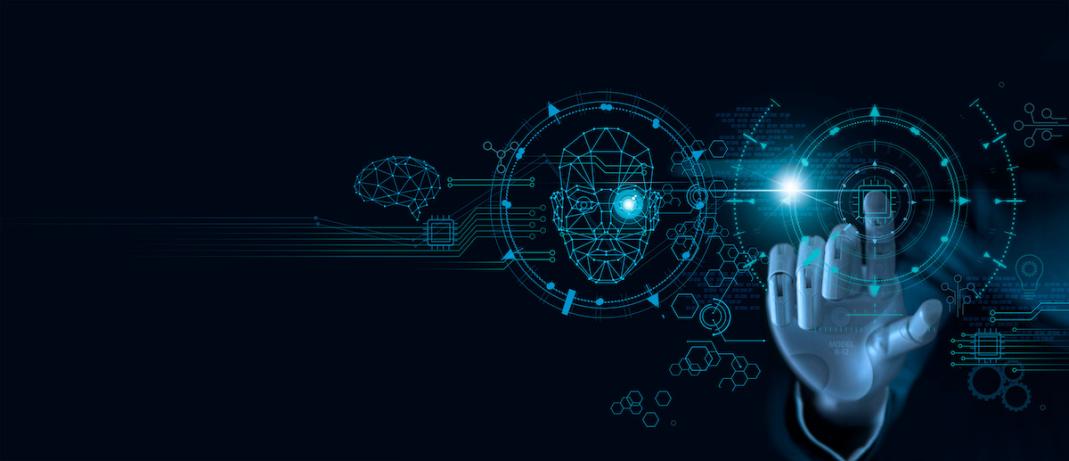How Does Artificial Intelligence Work?
Artificial intelligence (AI) is the simulation of human intelligence processes by machines, especially computer systems. AI research has been highly successful in developing effective techniques for solving a wide range of problems, from game playing to medical diagnosis. As a result, AI has become an essential tool for businesses and organizations of all kinds.

History Of AI
The history of AI can be traced back to the early days of computing. In the 1950s, researchers began to develop programs that could play games like checkers and chess. In the 1960s, they developed programs that could understand natural language and solve mathematical problems. In the 1970s, they developed programs that could learn from their mistakes and improve their performance over time.
In the 1980s, AI research began to focus on developing more powerful learning algorithms. This led to the development of neural networks, which are inspired by the human brain. Neural networks can learn from data without being explicitly programmed, and they have been used to achieve state-of-the-art results in a wide range of tasks, including image recognition, speech recognition, and natural language processing.
Types Of AI
There are many different types of AI, each with its own strengths and weaknesses. Some of the most common types of AI include:
- Machine learning: Machine learning algorithms allow computers to learn from data without being explicitly programmed. This makes them ideal for tasks where the data is constantly changing, such as fraud detection and spam filtering.
- Deep learning: Deep learning is a type of machine learning that uses neural networks to learn from data. Neural networks are inspired by the human brain, and they can learn to recognize patterns in data that are too complex for traditional machine learning algorithms to detect.
- Natural language processing: Natural language processing (NLP) is a type of AI that allows computers to understand and generate human language. NLP algorithms can be used for tasks such as machine translation, spam filtering, and sentiment analysis.
How Does AI Work?

AI works by using algorithms to process data and make decisions. These algorithms are typically based on mathematical models that have been trained on large datasets. When new data is presented to the algorithm, it uses the model to make predictions or decisions.
For example, a machine learning algorithm that has been trained on a dataset of medical images can be used to diagnose diseases. The algorithm would look for patterns in the images that are associated with specific diseases. If the algorithm finds a pattern that is associated with a particular disease, it would predict that the patient has that disease.
Applications Of AI
AI is used in a wide range of applications, including:
- Healthcare: AI is used for tasks such as diagnosis, treatment, and drug discovery.
- Finance: AI is used for tasks such as fraud detection, credit scoring, and investment management.
- Transportation: AI is used for tasks such as self-driving cars, traffic management, and logistics.
- Retail: AI is used for tasks such as product recommendations, customer service, and supply chain management.
- Manufacturing: AI is used for tasks such as quality control, predictive maintenance, and robot control.
Benefits Of AI
AI offers a number of benefits, including:
- Increased efficiency: AI can automate tasks that are currently performed by humans, freeing up humans to focus on more creative and strategic tasks.
- Improved accuracy: AI can be used to make more accurate predictions and decisions than humans.
- Reduced costs: AI can help businesses to reduce costs by automating tasks and improving efficiency.
- New opportunities: AI can create new opportunities for businesses and organizations by enabling them to do things that were previously impossible.
Challenges Of AI
AI also poses a number of challenges, including:
- Job displacement: AI could lead to job displacement as machines become more capable of performing tasks that are currently performed by humans.
- Bias: AI algorithms can be biased if they are trained on data that is biased. This can lead to unfair or discriminatory outcomes.
- Security: AI systems can be vulnerable to attack, which could lead to security breaches or even physical harm.
- Ethical concerns: AI raises a number of ethical concerns, such as the question of whether AI systems should be given the same rights as humans.
Future Of AI
The future of AI is bright. AI is rapidly becoming more powerful and capable, and it is likely to have a profound impact on our lives in the years to come. AI will likely be used to solve some of the world's most pressing problems, such as climate change, poverty, and disease.
However, it is important to be aware of the challenges that AI poses. We need to ensure that AI is used for good and that it does not harm humanity.
YesNo

Leave a Reply